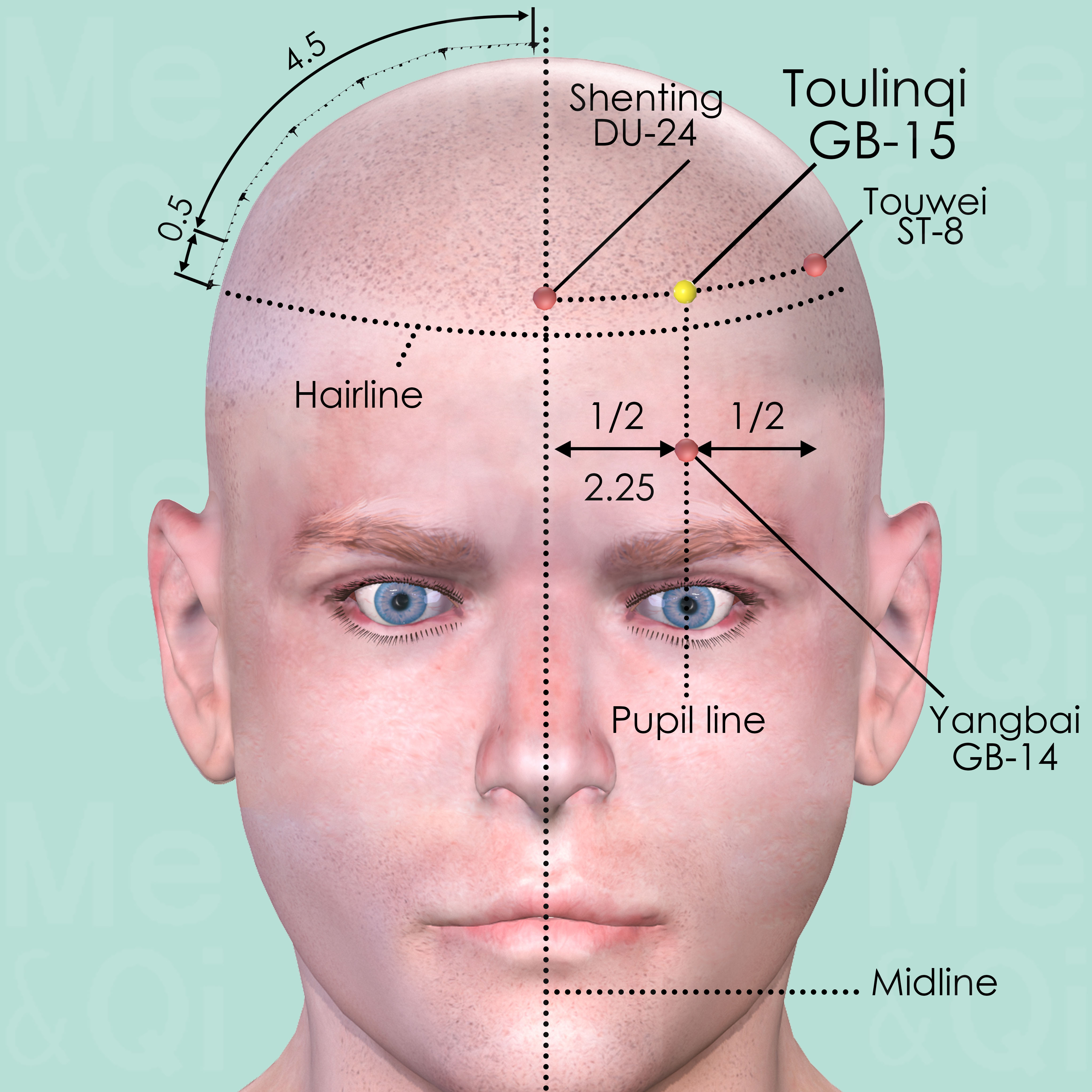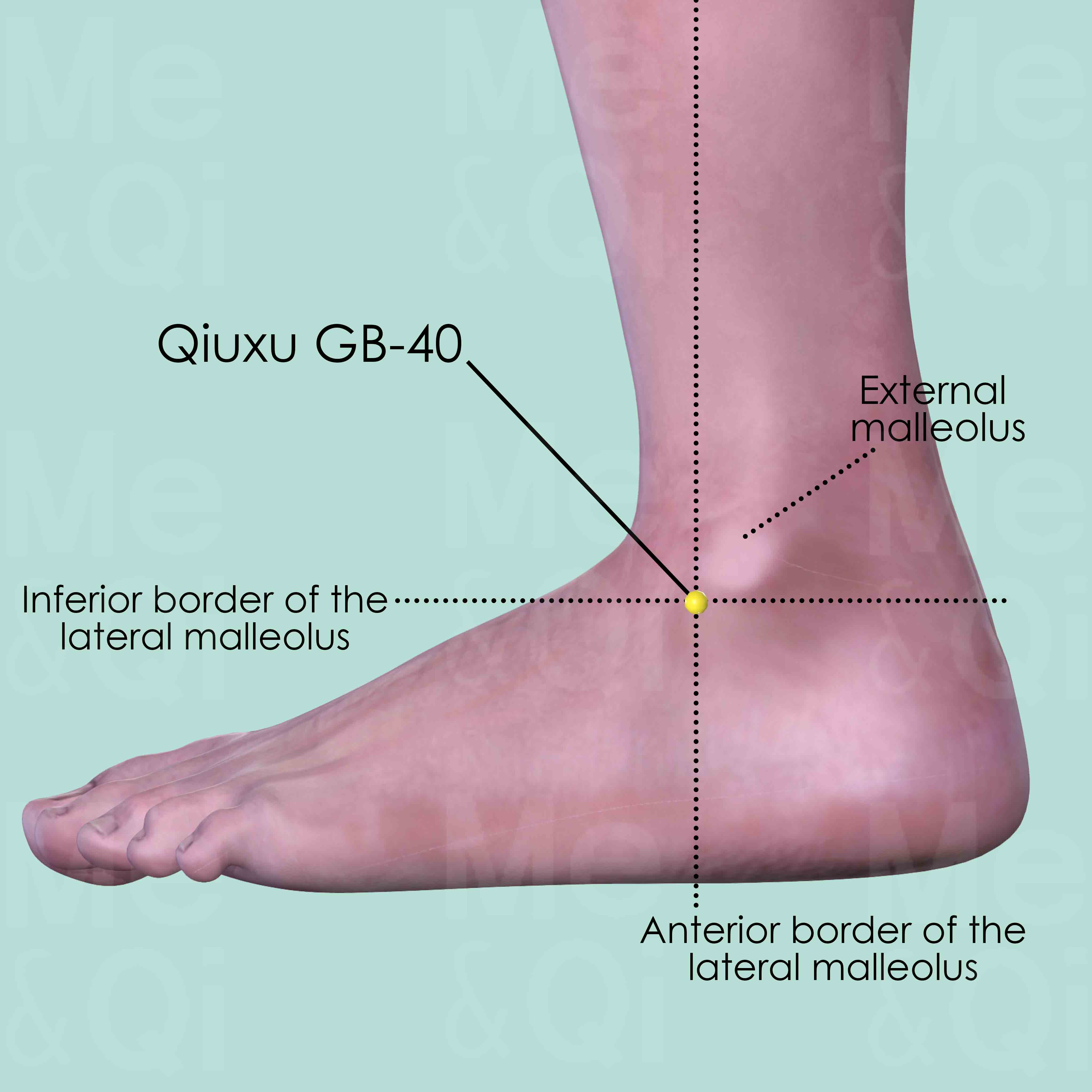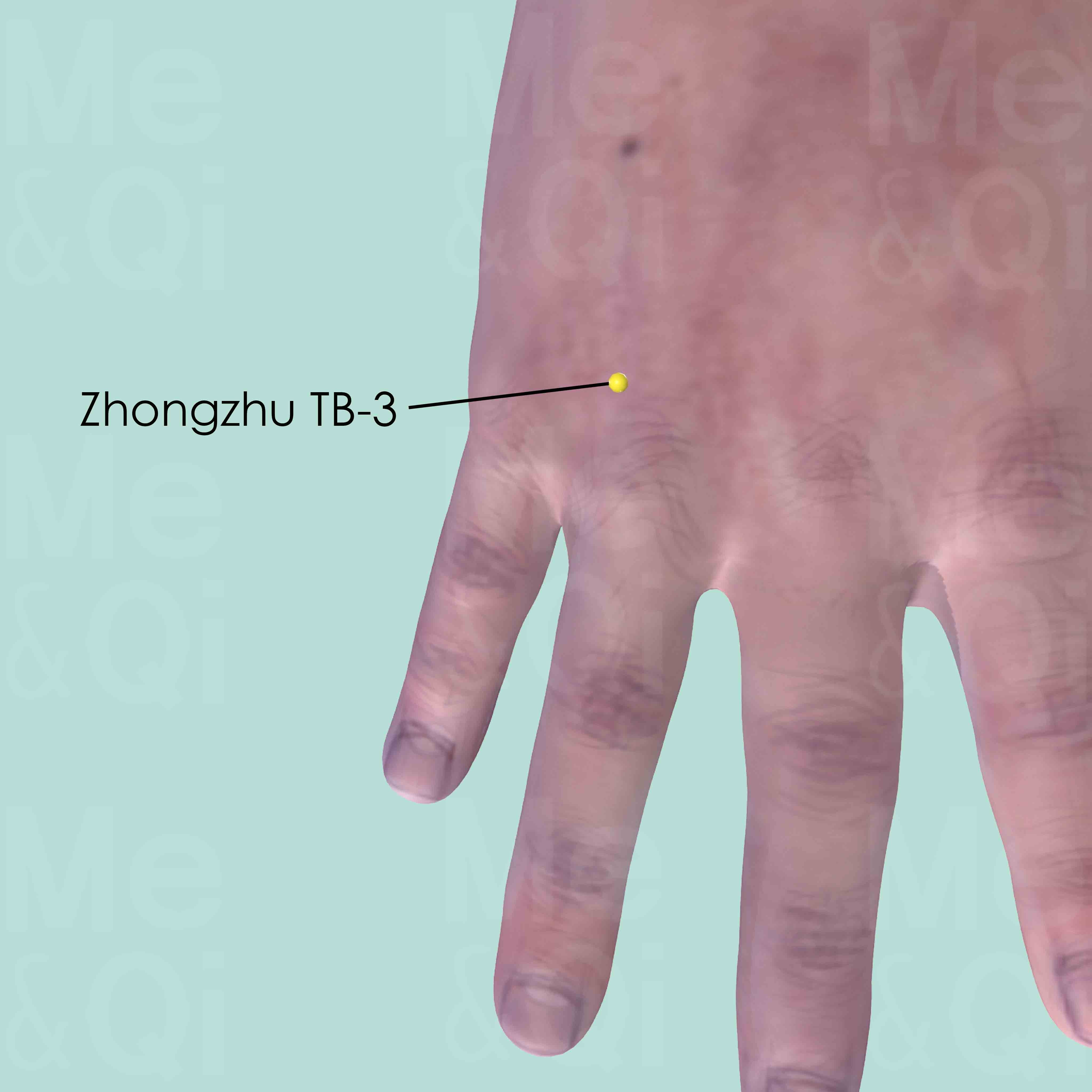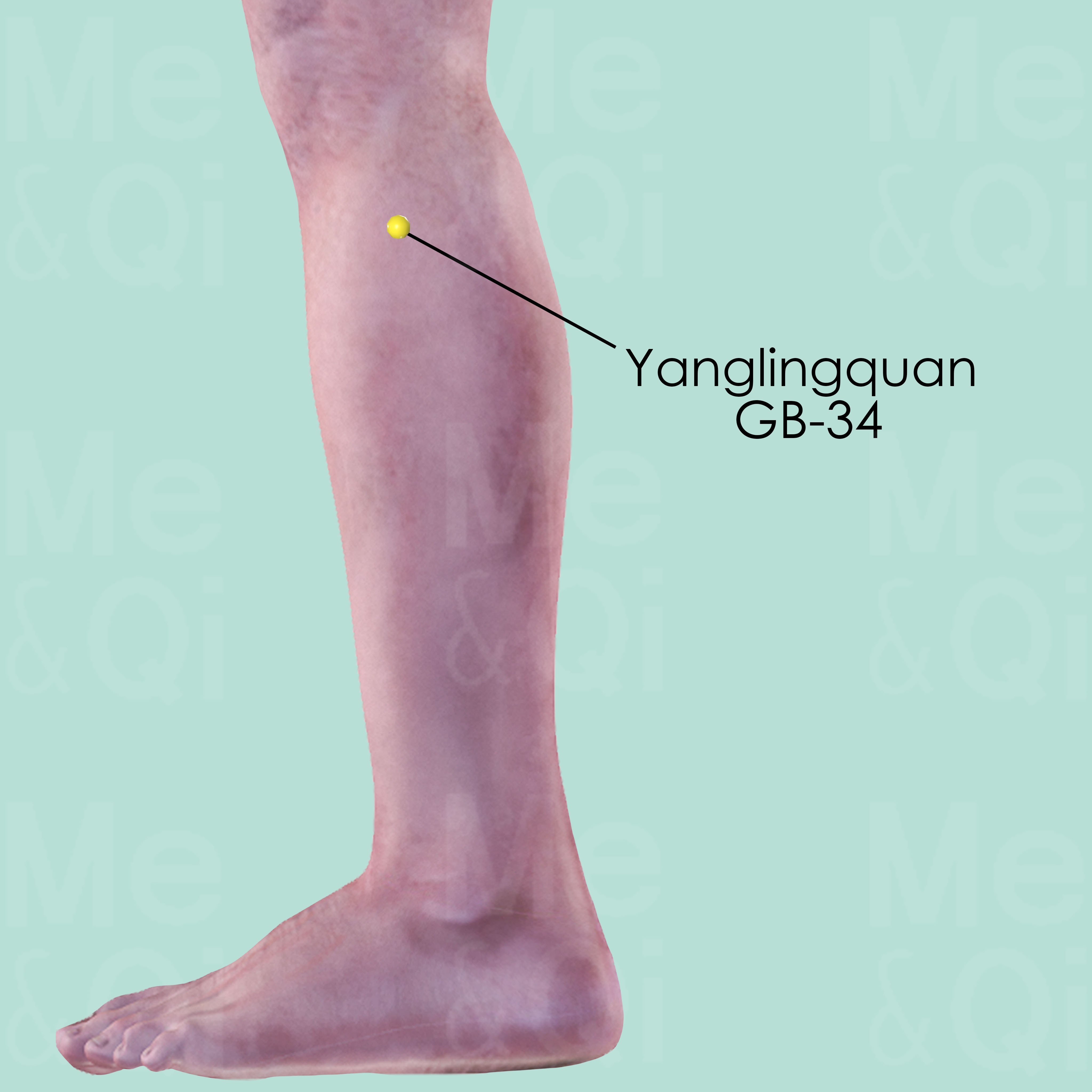Mood Swingsaccording to TCM
Symptom families: Behavioral Disorders, Anger and Hostility
Root Causes of Mood Swings in TCM
Explore below more details about what might cause Mood swings according to TCM.
Qi Stagnation
Qi Stagnation in TCM is like having a traffic jam in your body's energy system. Qi, the vital life force that flows through your body, is supposed to move smoothly to maintain health and balance. But with Qi Stagnation, this flow gets blocked or slowed down, like cars stuck on a highway. This can lead to symptoms like feeling stressed, emotional mood swings, and physical discomfort, often described as a feeling of fullness or tightness, especially in the chest or abdomen. It's as though the body's internal energy circulation is disrupted, causing various issues. TCM sees this as an energy flow problem, different from modern medicine's focus on specific physiological processes.... see more
Qi Stagnation Patterns That Can Lead to Mood Swings
Common Symptoms: Irritability Depression Irregular Periods Breast Engorgement Abdominal Pain Globus Sensation Menstrual Cramps Dark Menstrual Blood
| Pattern Name | Relevant Symptoms | Relevant Formulas |
|---|---|---|
| Qi And Blood Stagnation | Moodiness, Mood swings, Chest distension, Chest pain, Stabbing fixed pain, Dark face, Purple lips, Purple nails, Irritability, Depression, Mottled skin, Foot edema, Abdominal masses, Melena black tarry stool, Menstrual cramps, Amenorrhea, Dark menstrual clots, Dark menstrual blood, Prolonged lochia, Irregular periods... see more | Ge Xia Zhu Yu Tang | Tao Hong Si Wu Tang | Shao Fu Zhu Yu Tang | Wu Yao Tang | Jia Wei Xiao Yao San | Wei Jing Tang | Chai Hu Shu Gan San | Xue Fu Zhu Yu Tang | Shen Tong Zhu Yu Tang | Shi Xiao San | Qi Li San | Dan Shen Yin | Guo Qi Yin |
| Liver Qi Stagnation | Moodiness, Mood swings, Hypochondriac distention, Chest distension, Upper abdominal distension, Abdominal distention, Sighing, Melancholia, Depression, Irregular periods, Globus sensation, Pre menstrual breast distension, Pre menstrual tension, Anxiety, Anger... see more | Jia Wei Xiao Yao San | Xiao Yao San | Yue Ju Wan | Chai Hu Shu Gan San | Yi Guan Jian | Gua Lou San |
| Stagnant Liver Qi turning into Fire | Moodiness, Hypochondriac distention, Upper abdominal distension, Feeling of oppression of the chest, Irritability, Melancholia, Depression, Mood swings, Globus sensation, Feeling hot, Flushed face, Thirst, Anger, Pre menstrual tension, Irregular periods, Pre menstrual breast distension, Excessive menstruation... see more | Dan Zhi Xiao Yao San |
| Qi Stagnation | Mood swings, General fullness, Moving pain, Depression, Irritability, Sighing | Xiao Yao San | Chai Hu Shu Gan San | Si Mo Tang | Qi Ge San |
| Qi-Phlegm | Mood swings, Globus sensation, Dysphagia, Upper abdominal oppression, Irritability, Depression... see more | Ban Xia Hou Pu Tang |
Phlegm
In TCM "Phlegm" as a pattern of disharmony is a complex concept that extends beyond the physical manifestation of mucus. It represents a pathological factor that can disrupt the flow of Qi (vital energy) and blood, leading to various health issues. Phlegm in TCM is seen as a sticky, turbid substance arising from the body's inability to metabolize fluids properly, often due to a dysfunction of the spleen. It's not only associated with respiratory problems like cough and congestion but also with systemic issues. Symptoms can include a feeling of heaviness, mental cloudiness, dizziness, and in some cases, the formation of lumps or masses. Phlegm can even be "invisible," contributing to emotional disturbances like depression or stress. ... see more
Phlegm Patterns That Can Lead to Mood Swings
Common Symptoms: Depression Feeling Of Oppression Of The Chest Dizziness Nausea Feeling Of Heaviness Obesity Edema Generalized Fatigue
| Pattern Name | Relevant Symptoms | Relevant Formulas |
|---|---|---|
| Phlegm | Moodiness, Feeling of oppression of the chest, Head fog, Dizziness | Yue Ju Wan | Wen Dan Tang | Ban Xia Hou Pu Tang |
| Damp-Phlegm in the Uterus | Moodiness, Late menstruation, Amenorrhea, Scanty menstruation, Lower abdominal pain, Abdominal heaviness, Feeling of oppression of the chest, Generalized fatigue, Diarrhea, Dull pale complexion, Obesity, Infertility, Ovarian cysts, Ovarian fibroids, Polycystic ovary syndrome, Pseudocyesis, Sputum, Feeling of heaviness... see more | Cang Fu Dao Tan Wan | Xiong Gui Er Chen Tang |
| Qi-Phlegm | Mood swings, Globus sensation, Dysphagia, Upper abdominal oppression, Irritability, Depression... see more | Ban Xia Hou Pu Tang |
Blood Stasis
Blood Stasis in TCM is a concept where the blood flow in the body is not as smooth or efficient as it should be. Imagine a river that's supposed to flow freely, but instead, it's getting blocked or moving too slowly in some parts. This can lead to various health issues, like pain that feels sharp or stabbing, dark bruises, and a complexion that looks purplish. TCM believes that good health relies on the smooth and vibrant flow of Qi and blood throughout the body, so when blood gets stuck, it's like a traffic jam in your body, leading to discomfort or health problems.... see more
Blood Stasis Patterns That Can Lead to Mood Swings
| Pattern Name | Relevant Symptoms | Relevant Formulas |
|---|---|---|
| Qi And Blood Stagnation | Moodiness, Mood swings, Chest distension, Chest pain, Stabbing fixed pain, Dark face, Purple lips, Purple nails, Irritability, Depression, Mottled skin, Foot edema, Abdominal masses, Melena black tarry stool, Menstrual cramps, Amenorrhea, Dark menstrual clots, Dark menstrual blood, Prolonged lochia, Irregular periods... see more | Ge Xia Zhu Yu Tang | Tao Hong Si Wu Tang | Shao Fu Zhu Yu Tang | Wu Yao Tang | Jia Wei Xiao Yao San | Wei Jing Tang | Chai Hu Shu Gan San | Xue Fu Zhu Yu Tang | Shen Tong Zhu Yu Tang | Shi Xiao San | Qi Li San | Dan Shen Yin | Guo Qi Yin |
Dampness
"Dampness" in TCM is a concept that describes a pattern of disharmony where the body accumulates excess moisture. Imagine the heavy, sticky feeling you get on a very humid day; that's similar to what dampness feels like internally. It can manifest as a sense of heaviness, bloating, sluggishness, or even a foggy mind. This condition is often thought to arise from environmental factors like living in a damp place, dietary habits that promote moisture in the body, or internal imbalances that hinder the body's ability to process fluids properly. In TCM, dampness can obstruct the normal flow of energy and fluids in the body, leading to various symptoms.... see more
Dampness Patterns That Can Lead to Mood Swings
| Pattern Name | Relevant Symptoms | Relevant Formulas |
|---|---|---|
| Damp-Phlegm in the Uterus | Moodiness, Late menstruation, Amenorrhea, Scanty menstruation, Lower abdominal pain, Abdominal heaviness, Feeling of oppression of the chest, Generalized fatigue, Diarrhea, Dull pale complexion, Obesity, Infertility, Ovarian cysts, Ovarian fibroids, Polycystic ovary syndrome, Pseudocyesis, Sputum, Feeling of heaviness... see more | Cang Fu Dao Tan Wan | Xiong Gui Er Chen Tang |
Heat
In TCM "Heat" signifies an excess of Yang energy, leading to an imbalance where heat predominates over the body's cool Yin aspects. This condition is metaphorically akin to an internal over-heating. Symptoms indicative of Heat can include feelings of warmth, fever, sweating, irritability, red face, thirst with a preference for cold drinks, and a rapid pulse. The tongue may appear red with a yellow coating. Unlike the common interpretation of heat in terms of temperature, in TCM, it represents a state of hyperactivity or inflammation in the body.... see more
Heat Patterns That Can Lead to Mood Swings
| Pattern Name | Relevant Symptoms | Relevant Formulas |
|---|---|---|
| Stagnant Liver Qi turning into Fire | Moodiness, Hypochondriac distention, Upper abdominal distension, Feeling of oppression of the chest, Irritability, Melancholia, Depression, Mood swings, Globus sensation, Feeling hot, Flushed face, Thirst, Anger, Pre menstrual tension, Irregular periods, Pre menstrual breast distension, Excessive menstruation... see more | Dan Zhi Xiao Yao San |
Liver
In TCM the Liver is viewed as the organ responsible for the smooth flow of Qi, Blood, and emotions throughout the body. It plays a key role in regulating mood, storing blood, supporting digestion, and ensuring the health of tendons and eyes. When the Liver malfunctions or is imbalanced in TCM, it can lead to a range of issues such as irritability, mood swings, menstrual irregularities, eye problems, and muscular stiffness or pain. A malfunctioning Liver in TCM reflects not only physical disturbances but also emotional and mental disharmony, emphasizing the holistic approach of TCM in addressing health and wellness.... see more
Liver Patterns That Can Lead to Mood Swings
Common Symptoms: Hypochondriac Distention Upper Abdominal Distension Melancholia Depression Irregular Periods Globus Sensation Pre Menstrual Breast Distension Pre Menstrual Tension
| Pattern Name | Relevant Symptoms | Relevant Formulas |
|---|---|---|
| Liver Qi Stagnation | Moodiness, Mood swings, Hypochondriac distention, Chest distension, Upper abdominal distension, Abdominal distention, Sighing, Melancholia, Depression, Irregular periods, Globus sensation, Pre menstrual breast distension, Pre menstrual tension, Anxiety, Anger... see more | Jia Wei Xiao Yao San | Xiao Yao San | Yue Ju Wan | Chai Hu Shu Gan San | Yi Guan Jian | Gua Lou San |
| Stagnant Liver Qi turning into Fire | Moodiness, Hypochondriac distention, Upper abdominal distension, Feeling of oppression of the chest, Irritability, Melancholia, Depression, Mood swings, Globus sensation, Feeling hot, Flushed face, Thirst, Anger, Pre menstrual tension, Irregular periods, Pre menstrual breast distension, Excessive menstruation... see more | Dan Zhi Xiao Yao San |
Uterus
In TCM the Uterus (or "Bao Gong") is not just a reproductive organ but a vital system closely linked to Kidney energy, responsible for menstrual health, fertility, and pregnancy. It's also connected to the Heart and Liver, reflecting the importance of emotional and blood health in reproductive wellness. In TCM, the Uterus is seen as a reservoir of Blood and Qi, crucial for reproductive health and general vitality. When the Uterus malfunctions or is imbalanced, it can lead to menstrual irregularities, infertility, miscarriages, or menopausal symptoms. Additionally, there might be symptoms like lower abdominal pain or emotional disturbances such as mood swings, often linked to Liver Qi stagnation. These manifestations highlight the TCM perspective that the health of the Uterus is intertwined with the overall balance of energy and blood in the body, as well as emotional well-being.... see more
Uterus Patterns That Can Lead to Mood Swings
| Pattern Name | Relevant Symptoms | Relevant Formulas |
|---|---|---|
| Damp-Phlegm in the Uterus | Moodiness, Late menstruation, Amenorrhea, Scanty menstruation, Lower abdominal pain, Abdominal heaviness, Feeling of oppression of the chest, Generalized fatigue, Diarrhea, Dull pale complexion, Obesity, Infertility, Ovarian cysts, Ovarian fibroids, Polycystic ovary syndrome, Pseudocyesis, Sputum, Feeling of heaviness... see more | Cang Fu Dao Tan Wan | Xiong Gui Er Chen Tang |
TCM Herbal Formulas for Mood Swings
Explore below some TCM herbal formulas used to address mood swings, organized by cause and by formula type.
- By Cause
- By Formula Type
- Qi Stagnation
- Phlegm
- Blood Stasis
- Dampness
- Heat
- View More Causes
- Formulas that invigorate blood and dispel blood stagnation
- Formulas that promote qi movement
- Formulas that dry dampness and transform phlegm
- Formulas that tonify blood
- Formulas that harmonize liver-Spleen
- Formulas that clear internal abscesses and sores
- Formulas that nourish yin and tonify
- Formulas that clear liver-Heat
- Formulas that clear heat and resolve toxicity
- Formulas that regulate blood
Top Formula for Qi Stagnation:
Chai Hu Shu Gan San
Suitable for Qi Stagnation patterns that may cause mood swings, such as Qi And Blood Stagnation or Liver Qi Stagnation
Learn moreAll Formulas Recommended for Mood Swings Caused by Qi Stagnation
| Formula | Patterns Suitable For |
|---|---|
| Chai Hu Shu Gan San | Qi And Blood Stagnation, Liver Qi Stagnation, Qi Stagnation |
| Jia Wei Xiao Yao San | Qi And Blood Stagnation, Liver Qi Stagnation |
| Xiao Yao San | Liver Qi Stagnation, Qi Stagnation |
| Yue Ju Wan | Liver Qi Stagnation |
| Ban Xia Hou Pu Tang | Qi-Phlegm |
| Ge Xia Zhu Yu Tang | Qi And Blood Stagnation |
| Tao Hong Si Wu Tang | Qi And Blood Stagnation |
| Shao Fu Zhu Yu Tang | Qi And Blood Stagnation |
| Wu Yao Tang | Qi And Blood Stagnation |
| Wei Jing Tang | Qi And Blood Stagnation |
| Xue Fu Zhu Yu Tang | Qi And Blood Stagnation |
| Shen Tong Zhu Yu Tang | Qi And Blood Stagnation |
| Shi Xiao San | Qi And Blood Stagnation |
| Qi Li San | Qi And Blood Stagnation |
| Dan Shen Yin | Qi And Blood Stagnation |
| Guo Qi Yin | Qi And Blood Stagnation |
| Yi Guan Jian | Liver Qi Stagnation |
| Gua Lou San | Liver Qi Stagnation |
| Dan Zhi Xiao Yao San | Stagnant Liver Qi turning into Fire |
| Si Mo Tang | Qi Stagnation |
| Qi Ge San | Qi Stagnation |
Top Formula for Phlegm:
Ban Xia Hou Pu Tang
Suitable for Phlegm patterns that may cause mood swings, such as Phlegm or Qi-Phlegm
Learn moreAll Formulas Recommended for Mood Swings Caused by Phlegm
| Formula | Patterns Suitable For |
|---|---|
| Ban Xia Hou Pu Tang | Phlegm, Qi-Phlegm |
| Yue Ju Wan | Phlegm |
| Wen Dan Tang | Phlegm |
| Cang Fu Dao Tan Wan | Damp-Phlegm in the Uterus |
| Xiong Gui Er Chen Tang | Damp-Phlegm in the Uterus |
Top Formula for Blood Stasis:
Chai Hu Shu Gan San
Suitable for Blood Stasis patterns that may cause mood swings, such as Qi And Blood Stagnation
Learn moreAll Formulas Recommended for Mood Swings Caused by Blood Stasis
| Formula | Patterns Suitable For |
|---|---|
| Chai Hu Shu Gan San | Qi And Blood Stagnation |
| Jia Wei Xiao Yao San | Qi And Blood Stagnation |
| Ge Xia Zhu Yu Tang | Qi And Blood Stagnation |
| Tao Hong Si Wu Tang | Qi And Blood Stagnation |
| Shao Fu Zhu Yu Tang | Qi And Blood Stagnation |
| Wu Yao Tang | Qi And Blood Stagnation |
| Wei Jing Tang | Qi And Blood Stagnation |
| Xue Fu Zhu Yu Tang | Qi And Blood Stagnation |
| Shen Tong Zhu Yu Tang | Qi And Blood Stagnation |
| Shi Xiao San | Qi And Blood Stagnation |
| Qi Li San | Qi And Blood Stagnation |
| Dan Shen Yin | Qi And Blood Stagnation |
| Guo Qi Yin | Qi And Blood Stagnation |
Top Formula for Dampness:
Cang Fu Dao Tan Wan
Suitable for Dampness patterns that may cause mood swings, such as Damp-Phlegm in the Uterus
Learn moreAll Formulas Recommended for Mood Swings Caused by Dampness
| Formula | Patterns Suitable For |
|---|---|
| Cang Fu Dao Tan Wan | Damp-Phlegm in the Uterus |
| Xiong Gui Er Chen Tang | Damp-Phlegm in the Uterus |
Top Formula for Heat:
Dan Zhi Xiao Yao San
Suitable for Heat patterns that may cause mood swings, such as Stagnant Liver Qi turning into Fire
Learn moreFormulas that promote Qi movement
These formulas are suitable for some mood swings-causing patterns like Qi And Blood Stagnation or Liver Qi Stagnation.
One such formula is Chai Hu Shu Gan San, with bupleurum root as a key herb.
Other formulas of this category are listed in the table below.
All "formulas that promote qi movement" recommended for mood swings
| Formula | Patterns Suitable For (if applicable) |
|---|---|
| Chai Hu Shu Gan San | Liver Qi Stagnation, Qi And Blood Stagnation, Qi Stagnation |
| Yue Ju Wan | Liver Qi Stagnation, Phlegm |
| Ban Xia Hou Pu Tang | Phlegm, Qi-Phlegm |
| Wu Yao Tang | Qi And Blood Stagnation |
| Si Mo Tang | Qi Stagnation |
| Qi Ge San | Qi Stagnation |
Formulas that harmonize Liver-Spleen
These formulas are suitable for some mood swings-causing patterns like Qi And Blood Stagnation or Liver Qi Stagnation.
One such formula is Jia Wei Xiao Yao San, with bupleurum root as a key herb.
Other formulas of this category are listed in the table below.
All "formulas that harmonize liver-Spleen" recommended for mood swings
| Formula | Patterns Suitable For (if applicable) |
|---|---|
| Jia Wei Xiao Yao San | Qi And Blood Stagnation, Liver Qi Stagnation |
| Xiao Yao San | Liver Qi Stagnation, Qi Stagnation |
Formulas that dry Dampness and transform Phlegm
These formulas are suitable for some mood swings-causing patterns like Phlegm.
One such formula is Wen Dan Tang, with crow-dipper rhizome as a key herb.
Other formulas of this category are listed in the table below.
All "formulas that dry dampness and transform phlegm" recommended for mood swings
| Formula | Patterns Suitable For (if applicable) |
|---|---|
| Wen Dan Tang | Phlegm |
| Cang Fu Dao Tan Wan | Damp-Phlegm in the Uterus |
| Xiong Gui Er Chen Tang | Damp-Phlegm in the Uterus |
Formulas that invigorate Blood and dispel Blood Stagnation
These formulas are suitable for some mood swings-causing patterns like Qi And Blood Stagnation.
One such formula is Ge Xia Zhu Yu Tang, with szechuan lovage root as a key herb.
Other formulas of this category are listed in the table below.
All "formulas that invigorate blood and dispel blood stagnation" recommended for mood swings
| Formula | Patterns Suitable For (if applicable) |
|---|---|
| Ge Xia Zhu Yu Tang | Qi And Blood Stagnation |
| Shao Fu Zhu Yu Tang | Qi And Blood Stagnation |
| Xue Fu Zhu Yu Tang | Qi And Blood Stagnation |
| Shi Xiao San | Qi And Blood Stagnation |
| Qi Li San | Qi And Blood Stagnation |
| Dan Shen Yin | Qi And Blood Stagnation |
Formulas that tonify Blood
These formulas are suitable for some mood swings-causing patterns like Qi And Blood Stagnation.
One such formula is Tao Hong Si Wu Tang, with peach kernel as a key herb.
Other formulas of this category are listed in the table below.
All "formulas that tonify blood" recommended for mood swings
| Formula | Patterns Suitable For (if applicable) |
|---|---|
| Tao Hong Si Wu Tang | Qi And Blood Stagnation |
| Guo Qi Yin | Qi And Blood Stagnation |
Formulas that clear internal abscesses and sores
These formulas are suitable for some mood swings-causing patterns like Qi And Blood Stagnation.
One such formula is Wei Jing Tang, with common reed rhizome as a key herb.
Formulas that nourish Yin and tonify
These formulas are suitable for some mood swings-causing patterns like Liver Qi Stagnation.
One such formula is Yi Guan Jian
Formulas that clear Liver-Heat
These formulas are suitable for some mood swings-causing patterns like Stagnant Liver Qi turning into Fire.
One such formula is Dan Zhi Xiao Yao San, with mudan peony bark as a key herb.
Formulas that clear Heat and resolve toxicity
These formulas are suitable for some mood swings-causing patterns like Liver Qi Stagnation.
One such formula is Gua Lou San, with snake gourd as a key herb.
Formulas that regulate Blood
These formulas are suitable for some mood swings-causing patterns like Qi And Blood Stagnation.
One such formula is Shen Tong Zhu Yu Tang, with peach kernel as a key herb.
Acupoints for Mood Swings
Explore below some acupoints used to address mood swings, organized by meridian.
- By Meridian
- Gall Bladder Channel
- Triple Burner Channel

Toulinqi GB-15
Directly above Yangbai GB-14, on the pupil line, 0.5 cun within the hairline, midway between Shenting DU-24 and Touwei ST-8.

Qiuxu GB-40
Anterior and inferior to the external malleolus, in the depression on the lateral side of the tendon of extensor digitorum longus muscle that goes to the little toe.

Zhongzhu TB-3
When the hand is placed with the palm facing downward, Zhongzhu TB-3 is on the hand dorsum between the 4th and 5th metacarpal bones, in the depression proximal to the metacarpophalangeal joints, at the junction between the heads and shaft of the two metacarpal bones.

